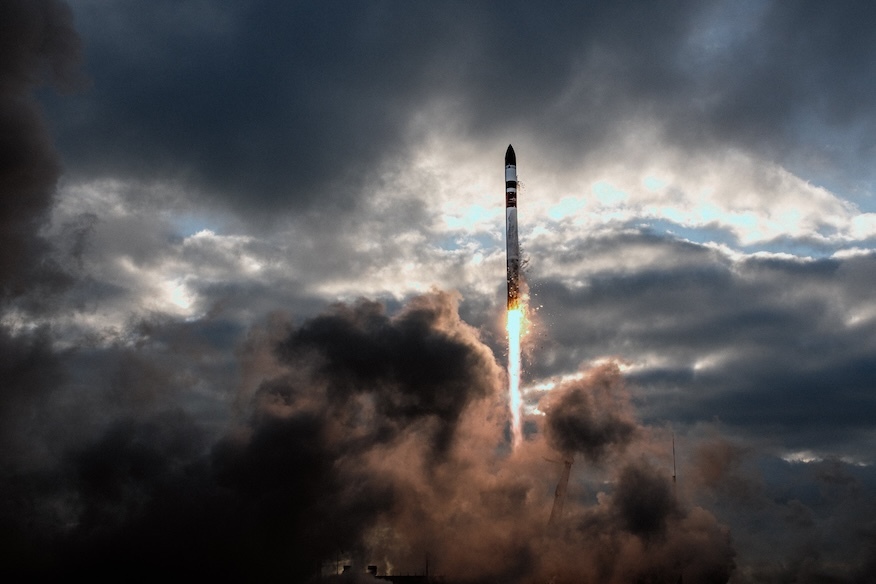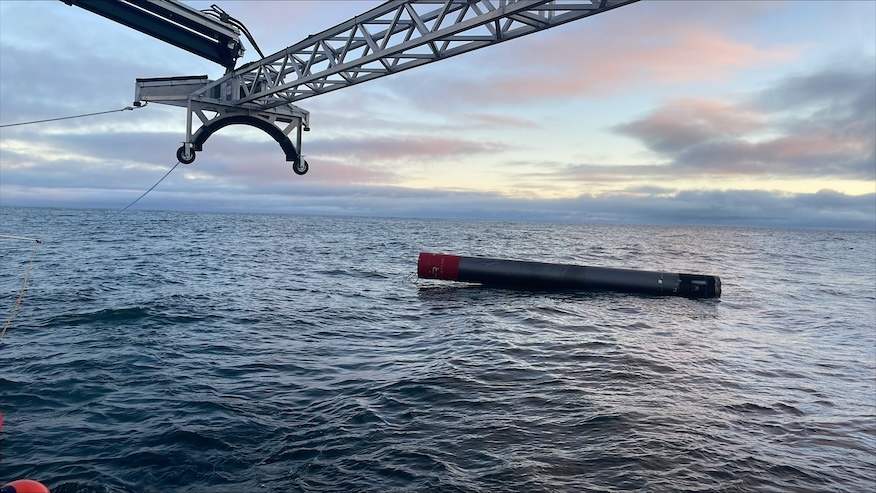A Rocket Lab Electron rocket lifts off from New Zealand on the company’s first flight of 2024. Image: Rocket Lab
Rocket Lab was back in action on Wednesday, kicking off its launch year with a recovery Electron mission from New Zealand. This was its second return to flight mission following a mishap late last year.
Liftoff from Rocket Lab Launch Complex 1 in New Zealand occurred at 7:34 p.m. NZDT (1:34 a.m. EST, 0634 UTC). Poor weather scuttled launch opportunities originally set for mid-January.
On board the Electron rocket for the “Four of a Kind” mission were four Space Situational Awareness (SSA) satellites from Spire Global and NorthStar Earth & Space.
This was the 43rd launch overall for Rocket Lab to date and the latest mission to recover the first stage booster. About 17 minutes into the flight, the booster splashed down in Pacific Ocean under parachutes, where it was scooped up by a recovery vessel.
Rocket Lab has ambitions of re-flying a first stage booster in its entirety. Last August, it demonstrated partial reuse with the re-flight of a Rutherford engine.
A Rocket Lab recovery vessel prepares to scoop an Electron first stage booster out of the Pacific Ocean following the launch of the “Four of a Kind” mission. Image: Rocket Lab
“The success of today’s mission to deliver Spire & NorthStar to orbit, and the completion of our secondary mission to return Electron to Earth after launch, has been a fantastic start of what is set to be Rocket Lab’s busiest year ever,” said Rocket Lab CEO Peter Beck in a statement. “We have more missions booked in 2024 than we’ve ever scheduled before, and it is a real privilege to continue to deliver small launch reliability for our satellite customers on advanced missions like these and for all the missions to come in 2024.”
The four 16U Spire-built and operated satellites were deployed to a 530 km circular Earth orbit by German company, Exolaunch. The mission, dubbed “NorthStar-1” NorthStar Earth & Space, is the first batch out of a planned 24-satellite constellation, which the company claims as “the first-ever SSA-satellite-as-a-service constellation.”
“Starting with this initial flight, NorthStar will enable continuous monitoring of satellites and nearby objects, providing state vectors for early detection and warning of safety- and security-related phenomena,” the company said in a statement in December 2023.
“I am intensely proud of our NorthStar team on this landmark occasion,” said Stewart Bain, CEO and Founder of NorthStar in a statement. “This mission is the first of its kind and is the physical manifestation of a decade long dream to deliver hope to future generations of space enthusiasts and to all of us who every day depend on a sustainable and clean space environment for the wellbeing of our planet.”
NorthStar plans to launch the first 12 satellites by 2026.
Space junk mission next up for Rocket Lab
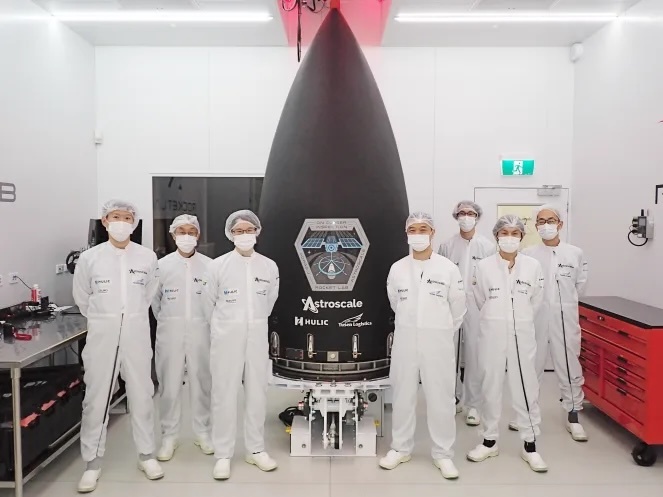
The Astroscale ADRAS-J spacecraft has been integrated into Rocket Lab’s Electron rocket at Māhia and is ready for launch. The 14-day launch window opens on February 19.Picture by Rocket Lab
United States space company Rocket Lab is set to take out the trash in its next mission from Māhia.
The On Closer Inspection mission is scheduled to launch during a 14-day window that opens on February 19. It will deploy the Active Debris Removal by Astroscale-Japan (ADRAS-J) satellite.
The mission is the first phase of an orbital debris removal programme.
During this phase ADRAS-J is designed to test technologies and operations for approaching and monitoring debris objects, also known as space junk, and delivering data that will assist in removing it to ensure the sustainable use of space for future generations.
Astroscale founder and chief executive Nobu Okada said the mission held “immense significance”, not just for the future of space sustainability, but for pioneering advancements in rendezvous and proximity operations, which are essential technologies to deliver any on-orbit servicing such as debris removal.
After launching on Electron, the 150-kilogram satellite will approach an aged, derelict rocket stage in orbit to observe it closely, understand how it behaves and determine potential methods for its assisted deorbiting in the future.
The rocket stage it will be observing is the Japanese H-2A upper stage left in low Earth orbit after the launch of the GOSAT Earth observation satellite in 2009.
ADRAS-J will fly around the stage, 11 metres long and four metres in diameter, inspecting it with cameras.
After deployment from Electron, Astroscale’s full mission will take between three and six months to complete.
To enable rendezvous with a non-cooperative space object requires a dedicated launch, highly responsive mission planning and extremely tight margins on orbital parameters.
The mission also demands highly accurate orbital insertion with tighter margins than required on most standard missions.
“Electron is really the only vehicle capable of delivering such a complex mission on an expedited timeline,” Rocket Lab founder and chief executive Peter Beck said.
“We’re immensely proud to be working with the Astroscale team in support of a pivotal mission that could have real, positive benefits for managing space sustainability for future generations.”
Quelle: The Gisborne Herald
----
Update: 18.02.2024
.
Rocket Lab launches ADRAS-J space junk inspection satellite for Astroscale
Liftoff of the 'On Closer Inspection' mission is scheduled for 9:52 a.m. ET today (Feb. 18).
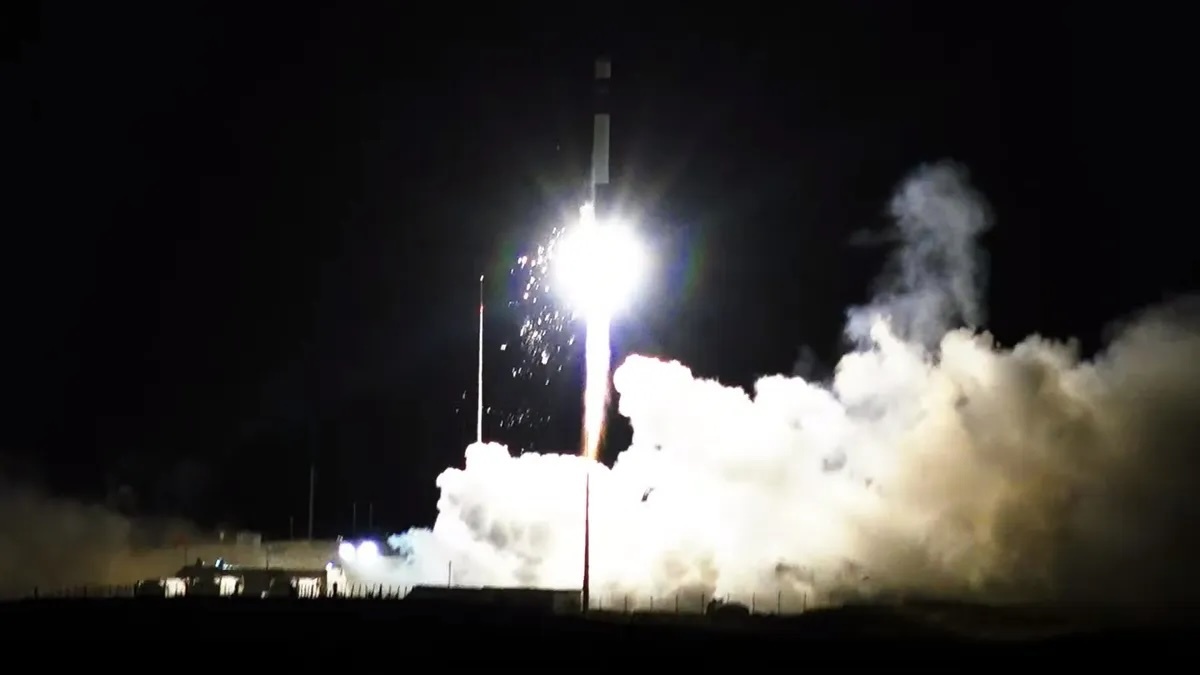
Rocket Lab launched an ambitious space-junk inspection satellite for the Japanese company Astroscale Sunday morning (Feb. 18),
Astroscale's ADRAS-J satellite lifted atop an Electron rocket from Rocket Lab's New Zealand launch site today at 9:52 a.m. EST (1452 GMT; 3:52 a.m. local New Zealand time on Feb. 19). The satellite is designed to inspect a large piece of space junk: a defunct Japanese H-2A rocket stage in low Earth orbit.
"The ADRAS-J mission will be the world's first attempt to safely approach and characterize an existing piece of large debris through rendezvous and proximity operations," Astroscale CEO and founder Nobu Okada said in a video statement.
ADRAS-J stands for "Active Debris Removal by Astroscale-Japan." True to its name, the satellite will try to make progress in humanity's fight against space junk, a problem that continues to grow as we launch more and more satellites to orbit.
"The mission is the first phase of an orbital debris removal program, and during this phase ADRAS-J is designed to test technologies and operations for approaching and monitoring debris objects," Rocket Lab representatives wrote in a mission description.
The 330-pound (150 kilograms) ADRAS-J will also deliver "data that will assist in removing [space junk], to ensure the sustainable use of space for future generations," they added.
Such work is a key focus for Astroscale, which was founded in 2013 and has subsidiaries in the United Kingdom, the United States, France and Israel.
In 2021, for example, the company launched a demonstration mission called ELSA-d, which captured a piece of simulated debris in orbit using a magnetic system. And in 2026, Astroscale plans to capture and remove two defunct British satellites from orbit, on a mission called COSMIC ("Cleaning Outer Space Mission through Innovative Capture").
"ADRAS-J is a pioneering mission that opens up a range of on orbit capabilities that will lead to a sustainable future in space," Okada said.
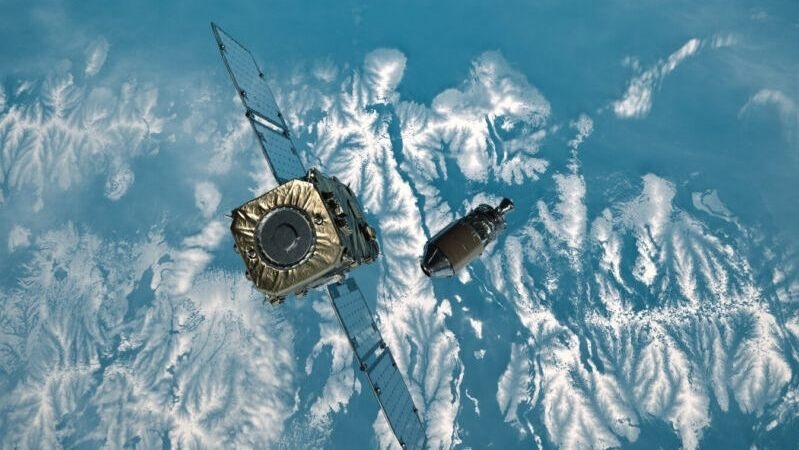
An artist's illustration of Astroscale's ADRAS-J satellite approaching an old Japanese H-2A rocket upper stage in Earth orbit. (Image credit: Rocket Lab)
The Electron successfully deployed ADRAS-J about 373 miles (600 kilometers) above Earth 64.5 minutes after liftoff. That's the orbital neighborhood occupied by ADRAS-J's target: the upper stage of the Japanese H-2A rocket that launched the GOSAT Earth observation satellite in 2009.
"ADRAS-J will fly around the stage, 11 meters long and four meters in diameter [36 by 13 feet], inspecting it with cameras," Rocket Lab wrote in the mission description. "After deployment from Electron, Astroscale's full mission will take between three and six months to complete."
"On Closer Inspection" will be Rocket Lab's 44th mission overall and its second of 2024. On this year's previous flight, which launched Jan. 31, Rocket Lab recovered the Electron's first stage from the sea, as part of its ongoing effort to make the booster reusable. There will not be a rocket recovery on today's mission, Rocket Lab representatives said.
Quelle: SC

